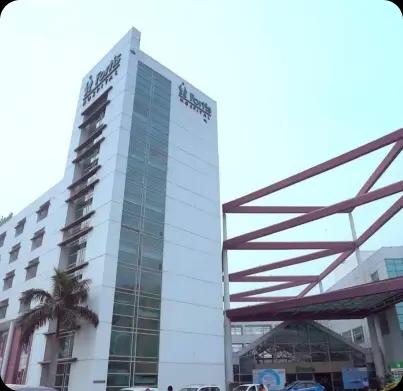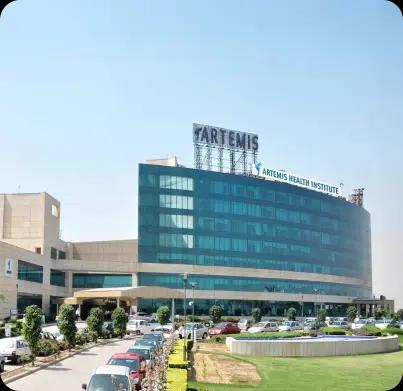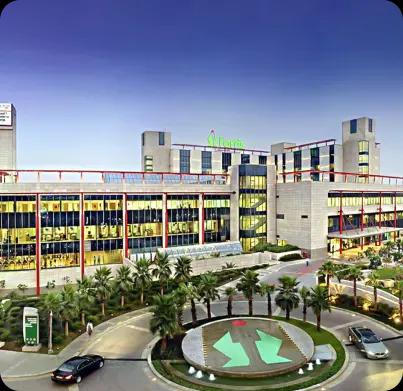
Retinal Detachment Surgery
Retinal detachment surgery aims to reattach the retina to the back of the eye, preventing vision loss. The procedure typically involves sealing retinal tears or holes, removing any fluid that has accumulated beneath the retina, and securing the retina in place with laser or cryotherapy. Post-surgery, patients may need to limit physical activity and use eye drops as part of the recovery process.
Free Pick up and Drop
No Cost EMI
Post Surgery Care
Retinal detachment surgery aims to reattach the retina to the back of the eye, preventing vision loss. The procedure typically involves sealing retinal tears or holes, removing any fluid that has accumulated beneath the retina, and securing the retina in place with laser or cryotherapy. Post-surgery, patients may need to limit physical activity and use eye drops as part of the recovery process.
Symptoms
Symptoms
Types of conditions
There are four main types of Retinal Detachment Surgery
Rhegmatogenous Retinal Detachment
Tractional Retinal Detachment
Exudative Retinal Detachment
Combined Retinal Detachment
Rhegmatogenous Retinal Detachment
This is the most common type, characterized by a tear or hole in the retina, allowing fluid to pass through and accumulate beneath the retina, leading to detachment.
DIAGNOSIS
The diagnosis of retinal detachment typically involves the following steps:
-
Medical History and Symptoms: The doctor will inquire about your symptoms, including any sudden changes in vision such as floaters, flashes of light, or a curtain-like shadow in your vision.
-
Visual Acuity Test: This test assesses your ability to see at various distances using an eye chart. It helps determine the extent of vision loss.
-
Ophthalmoscopy: This involves the use of a special instrument called an ophthalmoscope to examine the inside of the eye, including the retina. The doctor may use pupil-dilating eye drops to get a better view.
-
Slit-lamp Examination: This examination uses a special microscope with a bright light to examine the structures of the eye, including the retina and vitreous.
-
Ultrasound Imaging: If the view of the retina is obstructed, or if the doctor suspects a retinal tear or detachment, ultrasound imaging may be performed. This technique uses sound waves to create images of the eye's internal structures.
-
Optical Coherence Tomography (OCT): This non-invasive imaging test provides detailed cross-sectional images of the retina, helping to detect and monitor any abnormalities, including retinal detachment.
-
Fluorescein Angiography: In some cases, a special dye is injected into the bloodstream, and photographs are taken as the dye circulates through the blood vessels in the retina. This test helps identify any areas of leakage or abnormal blood flow.
CAUSES/RISK FACTORS
Causes and risk factors associated with retinal detachment include:
-
Eye Trauma: Any injury to the eye, such as a blow or penetrating injury, can increase the risk of retinal detachment.
-
Age-related Changes: As individuals age, the vitreous gel inside the eye can shrink and pull away from the retina, leading to retinal tears or holes.
-
Nearsightedness (Myopia): People with severe nearsightedness have a higher risk of retinal detachment due to elongation of the eyeball, which can thin the retina and increase the likelihood of tears or detachment.
-
Previous Eye Surgery: Individuals who have undergone cataract surgery or other intraocular procedures may have an increased risk of retinal detachment, especially if complications such as infection or inflammation occur.
-
Family History: A family history of retinal detachment or other eye disorders can predispose individuals to developing the condition.
-
Other Eye Conditions: Certain eye conditions, such as lattice degeneration (abnormal thinning of the retina), retinoschisis (splitting of the retina layers), or diabetic retinopathy, can increase the risk of retinal detachment.
PREPARING FOR SURGERY
Preparing for retinal detachment surgery involves several important steps:
-
Consultation and Evaluation: Meet with your ophthalmologist to discuss the procedure, ask any questions, and address concerns. Your doctor will evaluate your eye condition, medical history, and overall health to determine if surgery is necessary.
-
Pre-operative Tests: Your doctor may perform various tests, such as ultrasound, optical coherence tomography (OCT), or fluorescein angiography, to assess the extent of retinal detachment and plan the surgical approach.
-
Medication Review: Inform your doctor about any medications you are currently taking, including prescription drugs, over-the-counter medications, and supplements. Your doctor may advise you to temporarily stop certain medications before surgery.
-
Fasting: Follow your doctor's instructions regarding fasting before surgery. Typically, you will be asked to refrain from eating or drinking anything (including water) for a specified period before the procedure to reduce the risk of complications.
-
Arrange Transportation: Since retinal detachment surgery often involves anesthesia, arrange for someone to drive you home after the procedure. You may not be able to drive immediately afterward due to the effects of anesthesia and eye dilation.
-
Post-operative Care: Prepare your home for post-operative recovery. Stock up on prescribed eye drops, medications, and any recommended supplies. Create a comfortable and quiet space where you can rest following surgery.
-
Follow Pre-operative Instructions: Your doctor will provide specific pre-operative instructions, such as avoiding certain activities or medications, which you should carefully follow to ensure the best possible outcome.
By following these preparations and guidelines provided by your healthcare team, you can help ensure a smooth and successful retinal detachment surgery and recovery process.
TREATMENT DETAILS
Types
- Surgery:
- Scleral Buckling: Involves placing a flexible band (scleral buckle) around the eye to counteract the force pulling the retina away from the wall of the eye.
- Vitrectomy: A surgical procedure to remove the vitreous gel that is pulling on the retina and replace it with a saline solution or gas bubble to help reattach the retina.
- Pneumatic Retinopexy: Injection of a gas bubble into the eye, followed by laser or cryotherapy to seal the retinal tear and reattach the retina.
- Laser Therapy (Photocoagulation):
- Laser Photocoagulation: Uses a laser to create scar tissue around retinal tears or holes, sealing them and preventing further detachment.
- Cryotherapy:
- Cryopexy: Freezing treatment used to create scar tissue around retinal tears or holes, securing the retina in place.
- Scleral indentation:
- Indentation with a gas bubble: Injection of a gas bubble into the eye to push the detached retina against the wall of the eye, facilitating its reattachment.
- Combination Therapy:
- Combined Vitrectomy with Scleral Buckle: Utilizes both vitrectomy and scleral buckling techniques to reattach the retina and address underlying causes of detachment.
- Observation:
- In cases of asymptomatic or small retinal detachments, especially if they are not affecting central vision, the doctor may choose to monitor the condition closely without immediate intervention. However, prompt treatment is typically necessary to prevent vision loss.
RECOVERY
-
Post-operative Care: Follow your doctor's instructions regarding eye care, including using prescribed eye drops, avoiding rubbing or touching your eyes, and wearing an eye shield or patch as recommended.
-
Rest and Limitations: Rest your eyes as much as possible during the initial recovery period. Avoid strenuous activities, heavy lifting, and bending over, as these actions can increase pressure inside the eye and affect healing.
-
Vision Changes: It's common to experience blurred vision, sensitivity to light, or fluctuations in vision following surgery. These symptoms typically improve gradually as the eye heals.
-
Follow-up Visits: Attend all scheduled follow-up appointments with your ophthalmologist. These visits are crucial for monitoring your eye's healing progress, assessing visual acuity, and addressing any concerns or complications that may arise.
-
Activity Restrictions: Your doctor may advise you to avoid certain activities, such as driving or swimming, for a specified period after surgery. Follow these recommendations to prevent injury and promote optimal healing.
-
Gas Bubble or Silicone Oil: If you underwent surgery involving the use of a gas bubble or silicone oil, you may need to maintain a specific head position as instructed by your doctor to facilitate the reattachment of the retina.
-
Recovery Timeline: The recovery timeline varies depending on the type of surgery, the extent of retinal detachment, and individual factors. It may take several weeks to months for vision to stabilize fully.
-
Complications: While uncommon, complications such as infection, elevated intraocular pressure, or recurrent detachment may occur. Contact your doctor immediately if you experience severe pain, sudden vision changes, or other concerning symptoms.
-
Visual Rehabilitation: In some cases, additional treatments or vision rehabilitation may be necessary to optimize visual outcomes, especially if retinal detachment has caused permanent vision loss.
Your journey to good health begins here

Accredited Hospitals
Nationally accredited hospitals for high-quality care

Multi-language Support
Convey your needs in the language you're most comfortable in

Travel Booking Assistance
Seamless booking assistance for your healthcare journey

Personalised Treatment Plans
A treatment journey tailored to all your preferences and needs

Unparalleled Hospitality
Experience exceptional hospitality during your stay

Easy Medical Visa Approvals
Dedicated assistance for medical visa requirements
Plan your healthcare journey with Karetrip!
India’s Best Hospitals are Partnered With Karetrip
Access World-Class facilities from top Hospitals across India
Consult with India’s most experienced doctors
Experience premium care from India’s leading specialists

Dr. Ashok Singh
Ophthalmologist
31+ Years Of Experience

Dr. Arul Mozhi Varman
Ophthalmologist
44+ Years Of Experience

Dr. Sanjay Dhawan
Ophthalmologist
29+ Years Of Experience

Dr. Y Jayapal Reddy
Ophthalmologist
31+ Years Of Experience

Dr. Ankita Rachuri
Ophthalmologist
8+ Years Of Experience

Dr. Trishala M B
Ophthalmologist
32+ Years Of Experience
Cost Estimation
Learn about the expenses involved in the procedure and what factors affect them.

Estimating the cost of surgery involves several factors, including the type of procedure, hospital fees, surgeon's charges, and additional expenses such as anesthesia and post-operative care. Costs can vary widely based on location and the complexity of the surgery. It's essential to consult with healthcare providers, discuss insurance coverage, and inquire about potential out-of-pocket expenses to ensure a comprehensive understanding of the financial aspects associated with the surgical procedure.
The average cost of the Retinal Detachment Surgery in India is around ₹80,000 to ₹400,000.

₹400,000
High Cost
₹240,000
Average Cost
₹80,000
Low Cost
The LIST of AVERAGE COST of the Retinal Detachment Surgery across TOP 4 cities in India in Indian Rupee (INR) is as follows :
City
Lowest Cost
Average Cost
Highest Cost
Bangalore
₹80,000
₹240000
₹400,000
Delhi
₹100,000
₹300000
₹500,000
Mumbai
₹90,000
₹270000
₹450,000
Kolkata
₹80,000
₹240000
₹400,000
Commonly Asked Questions
How long does retinal detachment surgery take?
The duration of retinal detachment surgery varies depending on the specific procedure and the severity of the detachment but typically lasts between 1 to 3 hours.
Is retinal detachment surgery painful?
During the surgery, patients are usually under anesthesia and do not feel pain. Some discomfort or soreness may be experienced after the procedure, which can be managed with pain medication prescribed by the doctor.
What is the success rate of retinal detachment surgery?
The success rate of retinal detachment surgery varies depending on factors such as the type of detachment, the surgical technique used, and the individual's overall eye health. In general, success rates range from 80% to 90%.
How soon can I resume normal activities after retinal detachment surgery?
The recovery time varies for each individual, but most patients can gradually resume normal activities within a few weeks to a few months after surgery, depending on their doctor's recommendations.
Can retinal detachment recur after surgery?
Yes, retinal detachment can recur, especially in individuals with certain risk factors such as severe nearsightedness or a history of previous retinal detachment. Regular follow-up visits with an ophthalmologist are essential to monitor for any signs of recurrence.

Do you still have a query?


"I had a successful surgery at Fortis Escorts Hospital, and it was all thanks to Karetrip's help in finding the right hospital for me. The entire process was smooth and stress-free, with Karetrip handling all the arrangements and answering any questions I had. The medical team at the hospital was outstanding, and the facilities were top-notch. I highly recommend Karetrip to anyone looking for a tension-free healthcare experience."
Read MoreFatima
Chattogram


"Thanks to Karetrip, I got connected with MAX Hospital in New Delhi. The team guided me through every step – from finding the right doctor to handling travel and visas. They made a daunting process feel like a breeze. The care I received at MAX Hospital was outstanding, and I can't thank Karetrip enough for making it possible. They truly put patients first and go the extra mile to ensure a smooth healthcare journey. I'm grateful beyond words!"
Read MoreHasan
Dhaka


"At first, I was unsure about having a medical procedure done in a foreign country. However, Karetrip's team at Indraprastha Apollo Hospital made me feel much better. The hospital was very clean, modern, and had everything they needed to help me. The staff were very kind and did everything they could to make me feel comfortable. I'm really happy with how my treatment turned out, and I appreciate Karetrip for making it easy and stress-free."
Read MoreImran
Sylhet
 Google Reviews4.9/5
Google Reviews4.9/5




I had a successful surgery at Fortis Escorts Hospital, and it was all thanks to Karetrip's help in finding the right hospital for me. The entire process was smooth and stress-free, with Karetrip handling all the arrangements and answering any questions I had. The medical team at the hospital was outstanding, and the facilities were top-notch. I highly recommend Karetrip to anyone looking for a tension-free healthcare experience.
Fatima
Chattogram
 Google Reviews4.9/5
Google Reviews4.9/5



















